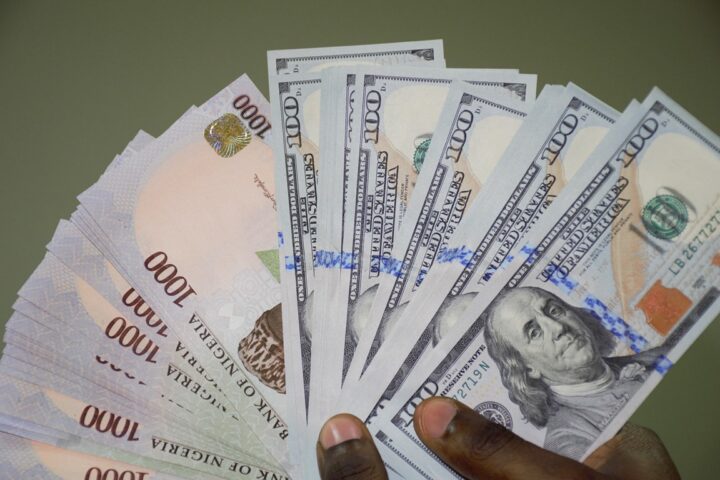The Association of Bureaux de Change Operators of Nigeria (ABCON) has petitioned the Central Bank of Nigeria (CBN) to require non-oil exporters to keep foreign currency in their domiciliary accounts for 48 hours.
ABCON president, Aminu Gwadabe said in a statement on Thursday, expressing the association’s support for the recent direction to prohibit the usage of non-oil export domiciliary account deposits for naira loans.
CBN had advised all banks to stop using foreign currency as collateral for naira loans on April 8.
Acccording to the financial authority, all existing loans with foreign currency collaterals would be reduced to 90 days or subject to a 150 percent capital adequacy ratio calculation as part of the bank’s risk assessment.
Commenting on the efforts of the CBN, Gwadabe said the directive would add to dollar liquidity in the market.
Gwadabe said:
“We are bewildered that some companies and manufacturers with huge billions of dollars balances in their non-oil export Dom account source their FX needs in the official window and use the same for naira loans. ”
“We therefore advise for the review of the guidelines on holding currencies on non-oil export accounts to a maximum of 48 hours, to borrow from the South African policy on the operations of non-oil exports Dom account proceeds.
“The CBN should also not make applicants of huge billions of dollars holding on their non-export oil proceeds Dom accounts eligible for FX request at both the Nigerian Autonomous Foreign Exchange Market (NAFEM) and Nafex window.”
Gwadabe also called on the CBN to seek legislative backing for its policies and circulars on BDC reforms in order to improve investors’ confidence.
“In the same vein we urge the CBN to upgrade its policies and circulars to legislation regarding the impending BDCS new reforms to give comfort and guarantees to would be investors in the transformation of the BDC industry’s sub sector and allowing only the existing stakeholders the grants father’s right for merger and acquisition to meet the expected reviewed financial requirements as suggested by ABCON,” he said.
“We also want to pledge our continuing support to the CBN’s proactive and effective policies to address our volatility headwinds.”
He added that as a self-regulatory body, its members have resolved to continue engaging all stakeholders and players in the retail end market to deepen, liberalise, democratised and centralise the retail end segments of the market for price discovery, market efficiency, transparency, accretion of buffers and healthy balance of payments.
“We therefore urge the CBN to continue to drive and expand its thought mechanism to maintain the feat so far achieved in more than 15 years; as we have not only achieved the convergence of both rates, but market calmness and confidence of the public and foreign investors,” he said.
“We also call for the separation of the ownership and operational structure of FMDQ.”





















